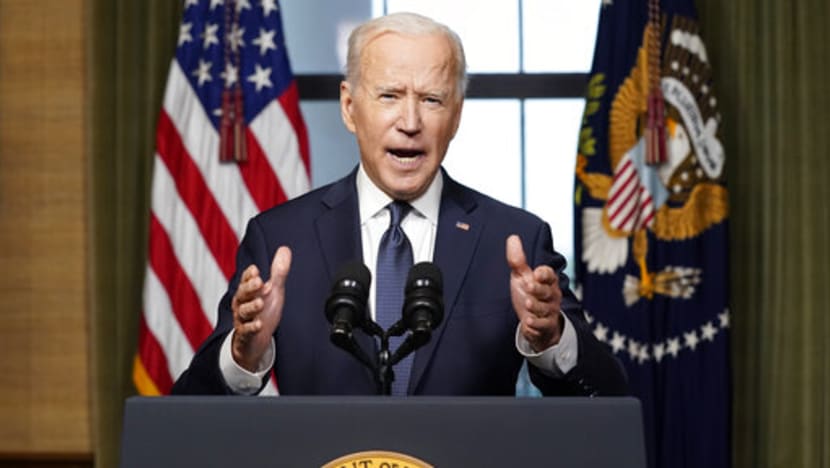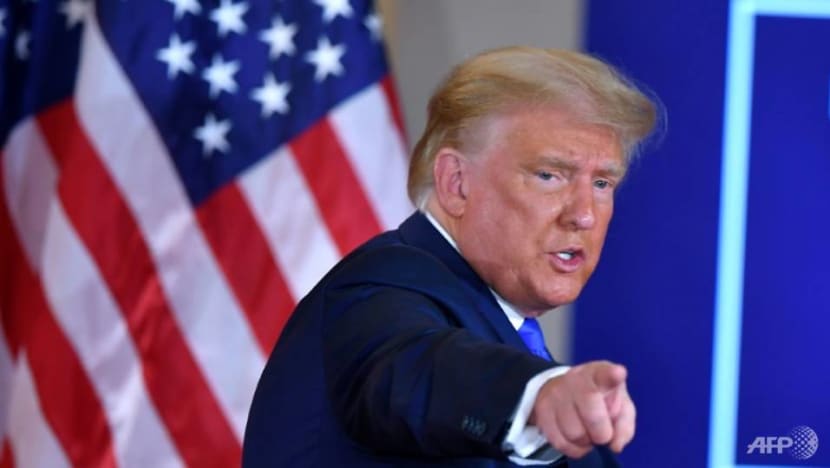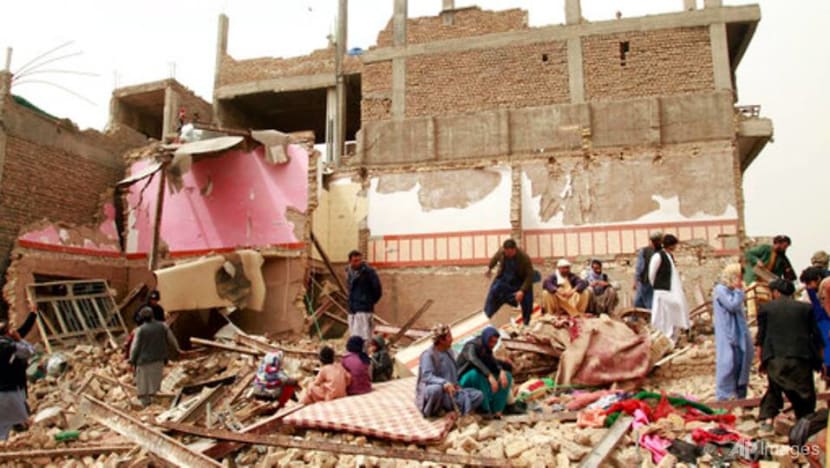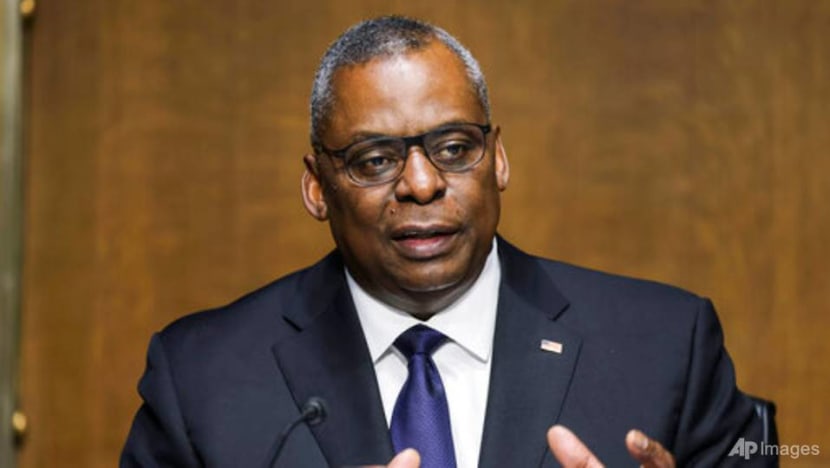Commentary: The US’ hasty exit from Afghanistan is a gift to the Taliban
The US has long desired to end the costly and unpopular war in Afghanistan. But exiting amid deteriorating conditions on the ground is unwise, says Yale-NUS College’s Dr Navin Rajagobal.

President Joe Biden had set May 1 as the official start of the withdrawal of the remaining forces — about 2,500-3,500 US troops and about 7,000 NATO soldiers. (Photo: AP)
SINGAPORE: The security situation in Afghanistan “remains as tense and challenging as at any time in recent history”, warns a report by a United Nations Security Council monitoring team released on Jun 1.
The report warns that “the Taliban’s messaging remains uncompromising” and “shows no assign of reducing the level of violence … to facilitate peace negotiations.”
It also highlights that Afghanistan still harbours foreign Al Qaeda and the Islamic State militants and the Taliban’s Haqqani Network maintains close ties with Al Qaeda.
The international community needs to pay attention. This is not punditry.
READ: Commentary: US withdrawal from Afghanistan is hollow victory for Pakistan
A report by an independent UN body charged with monitoring the security situation in Afghanistan has alerted us that the peace process is tenuous and the Taliban is not living up to its end of the signed agreement with the United States in February 2020 when Donald Trump was President.
Worse, nothing has been done to reduce rampant narcotics production and trafficking in the country - the Taliban’s largest source of income.
The failure of the peace agreement is exemplified by recent, escalating terror attacks on innocent civilians and targeted assassinations.
The UN monitoring team’s report identifies this to be a Taliban strategy to intimidate civil society and weaken the capacity of the Afghan government.
A RUSHED WITHDRAWAL?
The US withdrawal has been two decades in the making. The war in Afghanistan has been a costly, exhausting and increasingly unpopular one, spilling over from one administration to another since George W Bush.
It has persisted despite Barack Obama and Donald Trump’s campaign promises to end it under their respective presidencies.
And so President Joe Biden’s announcement of ending “America’s longest war” with a full withdrawal by Sep 11 in mid-April was met with considerable support among the American public.
But the same cannot be said of the US defence community or international opinion as ground conditions continue to deteriorate.

The United Nations Assistance Mission for Afghanistan (UNAMA) warned just days after that “extraordinary levels of harm” were being inflicted as significantly more civilians were killed and injured during the first three months of 2021 than a year ago.
Recent heinous crimes against humanity include the May 8 explosion outside a Kabul school that killed 85 people, mostly young girls.
A month later, 10 staff working for the mine clearance organisation HALO Trust were gunned down.
A few days ago, at least five staff working for two polio vaccination teams were murdered.
READ: Commentary: Afghanistan is not ready for foreign troops to leave
READ: Commentary: QAnon – how a conspiracy-consuming community persists, despite its leader going MIA
CUTTING LOSSES?
The US and its allies leaving Afghanistan at some point is inevitable. The ending of a war, if truly so, should be welcome.
However, the rushed nature of the US exit amid a questionable peace process has emboldened the Taliban and other extremist groups and engendered more suffering for the Afghan people.
Biden’s decision also risks the splintering of Afghan government forces; and more largely, calls into question if sacrifices of the deployed forces over the past 20 years will be squandered.
Brown University’s Cost of War project says the US has expended US$2.26 trillion on the conflict. At least 2,442 US military, 3846 US contractors, 1,144 allied military, 69,000 Afghan security forces and 47,425 Afghan civilians have perished.
Many countries, including Singapore where I write this from, contributed manpower and expertise to the International Security Assistance Force (ISAF) in Afghanistan over the years.
READ: Commentary: The SAF’s offer to fight terror in Marawi and the hard-nosed calculations of a small state
READ: Commentary: The curious case of US presidents squandering power in the Middle East
UNNECESSARILY RISKY
A poorly planned, rushed withdrawal by Sep 11, 2021, the anniversary of the 9/11 attacks on the US, is not only unnecessary and risky, but may backfire on the Biden administration if the Taliban and its terrorist allies manage to overwhelm Afghan forces and claim victory in Afghanistan on or near 9/11.

The US has relived the experience of the British Raj and the Soviet Union. All three have discovered that invading Afghanistan is easy, but occupation is painful.
However, the Soviet Union’s exit from Afghanistan and its aftermath provides an indication of what might happen in the country if the current trajectory is not checked.
Prior to withdrawal, the Soviet Union tried its best to ensure the survival of the pro-Soviet regime in Kabul. This did not work. Kabul was overrun in 1992.
This was followed by devastating wars among Mujahideen factions, each supported by an external power, which eventually led to the Taliban takeover in 1996.
When in power from 1996 to 2001, the Taliban not only hosted Osama bin Laden, but also committed atrocities against civilians, denied UN food supplies to starving Afghans, discriminated against religious and ethnic minorities, and destroyed world heritage monuments such as the 1500-year old Buddhas of Bamiyan.
READ: Commentary: Why Trump just may win big from killing Soleimani
What transpired in Afghanistan after the Soviets withdrew in 1989 can happen again after the US withdrawal in 2021 – devastating civil strife, widespread crimes against humanity, and an eventual takeover by extremist hardliners.
The Taliban’s recent moves suggest that it is positioning itself to wait out the occupation and strike at Kabul after, not unlike what the Mujahideen did to the Soviet Union in 1989.
If this likely scenario transpires, Afghans who cooperated with allied forces and supported the government in Kabul such as interlocutors, interpreters and minders as well as minorities, progressive women and girls, educators, journalists and others supporting civil society are at risk.
READ: Commentary: Joe Biden is reshaping America and the world in his image
AN INEVITABLE WITHDRAWAL
But sadly, the US seems to have calculated that withdrawing is in its best national interests, perhaps to refocus efforts to combat other challenges like the coronavirus pandemic, China and climate change.
However, the UN monitoring team points out: “It is impossible to assess with confidence that the Taliban will live up to its commitment to suppress any future international threat emanating from Al Qaeda in Afghanistan.”
Even the US Defense Secretary Lloyd Austin acknowledged recently that Al Qaeda or the Islamic State could quickly regenerate the capability to plan attacks against the US, especially if Kabul falls.

Yet, the unconditional, impending withdrawal of allied forces means the US and the Afghan government have no leverage to force the Taliban’s compliance with the Doha Agreement or extract concessions to ensure the safety of the Afghan people.
DO NOT ABANDON THE AFGHAN PEOPLE
The North Atlantic Treaty Organisation’s Brussels Summit Communiqué issued last week is somewhat assuaging.
It says, “withdrawing [NATO] troops does not mean ending our relationship with Afghanistan” and “we affirm our commitment to continue to stand with Afghanistan, its people, and its institutions in promoting security and upholding the hard-won gains of the last 20 years.”
Turkey will also maintain a post-NATO military presence in Afghanistan to guard Kabul’s airport, which is important for the US diplomatic presence in the country.
READ: Commentary: We need to talk about how Donald Trump’s presidency wasn’t a complete disaster
READ: Commentary: US decision to withdraw from Afghanistan is the right one
Perhaps this means that NATO will step up to do more and follow through with concrete measures on the ground over the next few weeks and months to regain leverage with the Taliban, and ensure that hard-won gains from the past 20 years are indeed upheld.
Pakistan, fearing civil war and a refugee crisis on its border, has also indicated that it is pushing the Taliban for a political settlement before the Americans leave.
The international community’s insistence on the Taliban’s full and verified compliance with the Doha Agreement as well as cessation of violence against Afghan civilians prior to any further withdrawal could help.
Leaving Afghanistan is inevitable, but it need not be hurried or chaotic, nor should it be an abandonment of the people of Afghanistan.
Dr Navin Rajagobal is Senior Lecturer, Global Affairs and Director, Academic Affairs at Yale-NUS College in Singapore. The views and opinions expressed herein are those of the author and do not represent the views and opinions of Yale-NUS College or any of its subsidiaries or affiliates.














